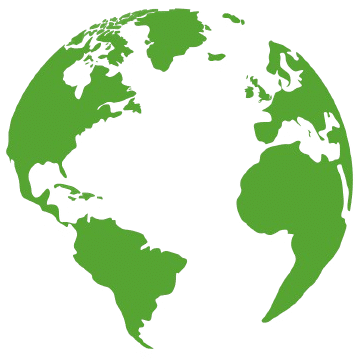Libya's unrest risks escalating into a new civil war. The unrest revolves around oil and Egypt, Turkey, and Russia's geopolitical interests.
Libya is at risk of sliding into another civil war
In North Africa, a rebel movement in Libya halted oil production in August. On the surface, it was "just" a struggle over the control of Libya's central bank. However, in reality, a larger geopolitical puzzle is unfolding, involving Egypt, Turkey, and Russia.
The prospect of Libya descending into another civil war has almost (but not quite) united Egypt and Turkey in their efforts to reconcile the warring factions in Libya. They have often had opposing geopolitical interests.
Libya has Africa's largest oil reserves, almost all located in the eastern part of the country. Oil accounts for 95% of the state’s revenue and 60% of the country's GDP. Libya produces 1.2 million barrels of oil per day, representing 4-5% of OPEC's total production and 1-1.5% of global production.
Politically, Libya is divided between a government backed by Turkey and recognized by the UN (controlling the western part of the country, including Tripoli) and a rival eastern administration based in Benghazi led by Khalifa Haftar (Libyan National Army). Haftar is supported by Russia, Saudi Arabia, and the UAE. Until recently, he was also supported by Egypt.
Many countries stand to benefit, among other things, from an increase in oil prices
At the end of August, Haftar shut down all oil production and exports in an attempt to gain control over the central bank in Tripoli. The Libyan government wants to oust the central bank governor, Sadiq al-Kabir, accusing him of embezzling oil revenues. However, Kabir refuses to step down, prompting the government to take over the central bank's office.
Haftar's actions likely have little to do with Sadiq al-Kabir personally. Instead, Haftar's foreign supporters have an interest in driving oil prices up again. A 1-1.5% drop in global oil supply has historically led to price spikes of 12-18 USD per barrel.
Russia has significant influence over Haftar and has provided weapons to the Libyan National Army. Conversely, Turkey has supplied arms to Libya's government. This puts Russia on a collision course with Turkey on LIbyan soil, just as in places like Niger.
Russia's support for Haftar’s control over Libya’s oil also hints at the fracturing of OPEC's internal unity. Russia needs a high oil price due to international sanctions that raise the cost of extracting and transporting Russian oil and natural gas (LNG). OPEC+ would have been the natural place for Russia to secure an agreement on supply cuts, rather than risking dividing the Arab world.
However, many smaller OPEC countries have a greater need for increased cash flow to service their international loans. Therefore, they have a stronger interest in increasing their output and market share.
Turkey’s geopolitical involvement both complicates and stabilizes the situation
In 2020, Haftar and the Libyan National Army were close to capturing Tripoli. They were only stopped by Turkish drones and troops.
Turkey has a close relationship with the government in Tripoli and has entered into an agreement with Libya on a "maritime corridor" from Turkey to Libya, as shown below. Although the corridor violates international maritime law and has led to sharp protests from neighboring countries and the UN, the agreement marks Turkey’s gamble on Libya as its "main corridor" to Africa.
Since Erdogan took office, Turkey's geopolitical activity has increased significantly. The strategy has earned Turkey the nickname "the power in the middle." Since 2008, Turkey has gone from being the world's 3rd largest importer of weapons to becoming the 14th largest exporter. It now produces everything from frigates, submarines, helicopters, missiles, drones, and is developing 5th-generation fighter jets, tanks, and ship drones.
Thus, Turkey has a clear interest in ensuring stability in the country’s political leadership.

